Am I getting enough nutrients? - Vegan nutrition special - Part 2 Calcium

We continue the vegan nutrition series with a famous nutrient, namely calcium.
Can you get enough calcium on a vegan diet?
The short answer is yes. Did you know that there is a plant based drink that contains 27 times the amount of calcium that cow’s milk contains? We will get there...
Why do we need calcium?
You probably already know…yes, strong bones. Without it we can get osteoporosis and poor teeth.
But calcium is used for much more in the body. You need it for proper muscle function, nerve function, blood clotting, etc.
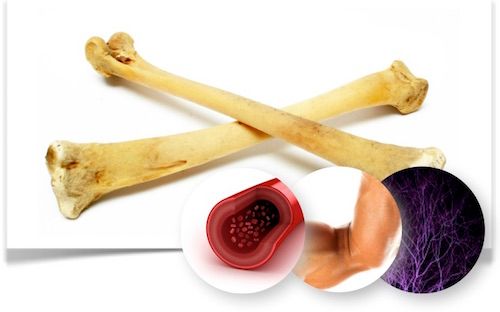
So, calcium is good for us. But it can also cause trouble. This is important to know.
If we get an excess of calcium and do not have other nutrients that are required to handle the calcium, such as vitamin K2, we will start putting it in places it does not belong, such as arteries, and other places in the body where calcifications will arise. These can be found in varicose veins, heal spurs, calcifications in lung tissue, etc. The ones in the arteries lead to atherosclerosis, and heart disease. It is essential to get enough vitamin K2 if your intake of calcium is high. More on that in the coming article on vitamin K2.
How much calcium do you need?
The daily recommended amount in the western world is set around 1000 mg, with slight variations depending on age and sex (1300 mg for teenagers, 700 mg for toddlers).
This is a rather high value, the reason for this is in part because we have a diet that in different ways takes away calcium from our body. A high protein diet will do this, as well cola drinks that take out calcium from our bones. We also tend to have quite sedentary lifestyles.
And the fact that industries that sell dairy are rather powerful does not exactly diminish their influence on the dietary recommendations that are given to say, Americans. Could this have anything to do with the fact that the UK recommends around 700 mg of calcium for adults and the USA around 1 200 mg?
It may be interesting to know that there are people living on mostly whole foods that are plant based who get less than 500 mg per day, and are not suffering from lack of calcium. This is not a recommendation to lower your calcium intake, because if you live in the western world, then you probably do need more calcium.
People on a vegan diet tend to consume less proteins, and will thereby often have a lower need for calcium. But this will depend on their food choices. Some vegans eat significant amounts of isolated soy proteins and products made from them. They may also choose cola drinks and eat foods that reduce the calcium their body can use, thus needing a higher calcium intake. So, if you are a vegan be careful if you reduce your calcium intake.
Factors that can reduce your calcium are high protein diets, high sodium diets, caffeine, alcohol, carbonated drinks with phosphorus (like cola drinks), anti-nutrients like phytic acid, oxalic acid, glyphosate.
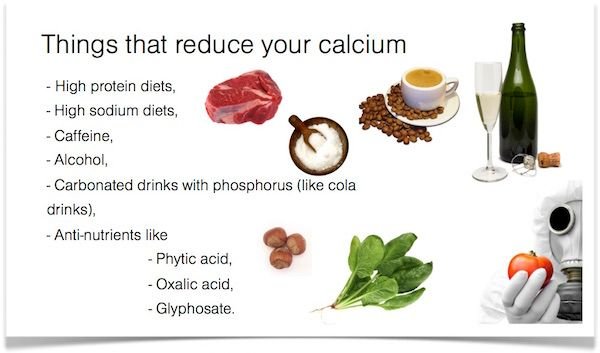
Can you get too much calcium?
Too much calcium can be a problem as well. It may increase your risk of getting kidney stones and a heart attack.
For calcium to work in our body we will also need other nutrients. We will need vitamin D, so that we may be able to absorb the calcium. We will need vitamin K2 to transport it in our body. We will also need the right amount of magnesium and potassium for our bones. We will need vitamin A, in order to eliminate calcium from places where it should not be stored (in soft tissues).
And so, if the other nutrients are missing, even a relatively low dose of calcium may lead to undesired effects, because the body does not the have ability to deal with it at the time.
So, it is actually possible that you are getting too little calcium for your bones, and yet you are storing calcium in your arteries and other soft tissues. To remedy the situation we need to look further than just calcium.
This is particularly important to consider if we choose to take supplements. Usually we will supplement with just calcium and vitamin D. But doing so, without taking vitamin K2 will increase the risk of dying of a heart attack!
Getting your calcium from natural sources, particularly vegan ones, will often be healthier, as you will also be getting other important nutrients. But in our culture you may still be missing vitamin K2, which your body is not as good at making as you get older.
How do we get calcium?
Originally most people will associate calcium with cow’s milk. This is probably because the dairy industry has done a good job promoting their product. However, it turns out that the people who drink more milk tend to get more osteoporosis, not less. This was found when looking at milk consumption in different countries.
How is that possible? Milk does indeed contain calcium, and we can absorb it. But, it also contains a lot of protein. Especially cow’s milk contains a lot of protein, so that the little calf can in a matter of months grow a few hundred pounds. This is good for the calf. Not so good for the human. And especially not for the adult human. And so, it turns out that cow’s milk may tend to extract more calcium from the human body than it brings to it.
This is why the dairy industry is no longer allowed to say that milk gives strong bones. But they can still say that milk is rich in calcium. And that calcium is good for the bones. Tricky, isn’t is?
So, what are the sources of calcium in the vegan world?
You will probably hear that you should get plenty of leafy greens. And that is true. This is a good source of calcium. If you want to increase your intake of leafy greens just make sure that you do not eat a lot of the ones that are high in oxalates, as these may inhibit the absorption of calcium. So, stay away from spinach, beet greens, rhubarb, and Swiss chard.
If you are not naturally an avid leaf eater, you can still enjoy the benefits of leafy greens in green juices. Leafy greens also tend to alkalise the body, the opposite of what milk does. And substances in them tend to work against the chemicals produced when we cook food, which tend to set off cascades of inflammations in our bodies. So, there are plenty of benefits.
But, we also have a special ingredient for you. A cup of it contains around 27 times the amount of calcium found in a cup of cow’s milk.
It is mulberry leaf tea.
Aside from providing you with calcium, it will work to reduce high blood pressure, help protect the heart, and not let the blood sugar to rise as high.
Here is how you make mulberry leaf tea:
Get dried mulberry leaves. Boil water. When it is boiling throw in the mulberry leaves. Turn off the stove and cover the pot with a lid. Let it stand and soak for around 10 minutes. Then, serve it through a strainer, to get rid of the leaves, and enjoy a hot cup of mulberry leaf tea!
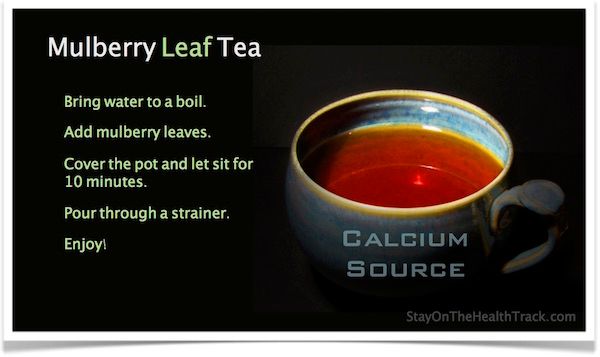
If you would like to sweeten it with something rich in calcium and iron, use blackstrap molasses. Just one tablespoon of blackstrap molasses gives you around 172 mg of calcium (source Nutritiondata.self.com).
Also, did you know that one cup (regular 250ml cup not a teacup) of orange juice can give you 500 mg of calcium?
How much calcium am I getting?
You can use any one of the free online nutrition trackers, like Cronometer.com, to find this out. You just enter exactly what you eat and drink during a day and it calculates the nutrients for you.
This is actually a very good option for anyone concerned with the nutritional value of their food. You will be able to see where you may be low.
If calcium is a concern for you, you can increase your intake of leafy greens, make orange juice, use blackstrap molasses as a sweetening option, and enjoy some mulberry leaf tea.
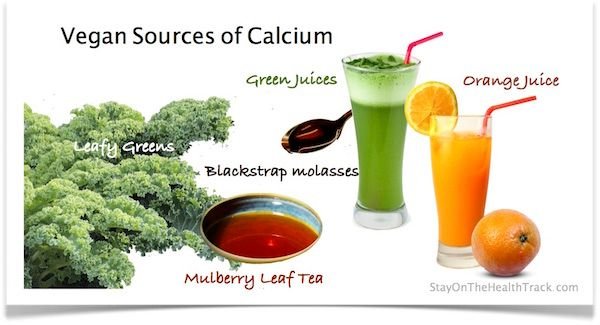
-ooo-
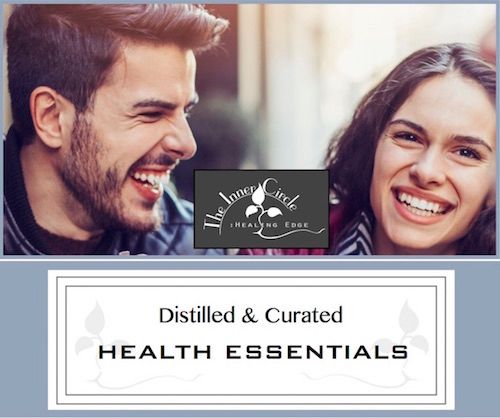 .
.